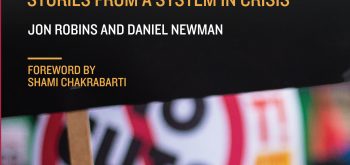In a case that could cost the Home Office around £1m, the High Court decided last week that a drastic reduction in welfare support for potential victims of modern slavery was unlawful. Mr Justice Mostyn concluded that the decision to make cuts ‘was taken on a false basis and cannot stand’. Around 1,000 potential victims are thought to be affected.
One of the claimants, known only as K, was an Albanian woman who suffered depression and PTSD, having been brought to the UK by sex traffickers. She was raped by several men every day. After her financial support was cut, she no longer had the money to attend the mentoring sessions and vocational training that were central to her recovery. These kinds of programmes not only allow victims to recover, but also reduce the risks of re-exploitation.
Following the judgment, K commented: ‘I am so happy with the judgment and how it will help other victims affected by the cuts, like me. I was so low because I was not able to do the activities which had been helping me before my money was cut. Now that I can afford to re-engage with my support network and activities, it makes me feel more positive about my future.’
In March 2018, the Home Office cut weekly payments to potential victims of modern slavery who were also seeking asylum from £65 to £37.75, a reduction of 42%. The Home Office argued that it was unfair to offer more support to modern slavery victims who happened to be applying for asylum than to asylum-seekers with no connection to trafficking or modern slavery. However, that argument was resoundingly rejected by the High Court. Thanks to the judgment, anyone subjected to the cut is entitled to repayments of £27.25 per week from the date when the cut was imposed.
Nusrat Uddin, the solicitor at Wilson Solicitors who acted for K, said: ‘For over eight months, our client has been denied all the services vital for her recovery from her past traumatic experiences.’
‘A back payment can’t make up for the lost time and support’, Uddin continued, ‘but we hope that at least now our client and others affected by these cuts can start to stabilise and rebuild their life again.’
Under the Modern Slavery Act 2015, the National Referral Mechanism (NRM) oversees the identification of victims. It operates a two-stage process in order to balance the need to offer victims immediate protection against the need to conduct proper investigations into what has happened to them. First, the Home Office notifies the relevant individual that there are reasonable grounds to believe that they are victims of modern slavery or trafficking. Then, further investigations take place, following which a conclusive determination of that person’s status is made.
People left in limbo between the first stage and the second are often living in fear and isolation, without any means of subsistence. They receive certain limited support through a contract between the Home Office and the Salvation Army, in recognition of their specific needs during recovery.
After hearing evidence from K and AM, as well as interventions from the NGOs Hestia and The Salvation Army, Mr Justice Mostyn was persuaded of the negative impact that the ‘very substantial cut’ had had on those in the ‘highly vulnerable and distressing position’ of victims. ‘In public law terms’, he added, ‘the decision can be characterised as irrational and perverse’. Further, the spending reduction did not constitute a legitimate variation of the contract between the Home Office and the Salvation Army.
In another passage of the judgment, the judge criticised the Home Office’s failure to publish guidance on how victims of modern slavery are to be supported, in accordance with the Modern Slavery Act. Mr Justice Mostyn wrote that the Home Secretary has ‘an absolute duty immediately to issue the guidance that Parliament required him’, describing the possibility of further delays as ‘completely unacceptable’.
Reacting to the judgment, the Home Office reiterated its commitment to the Modern Slavery Act and promised to ‘set out our response in due course’.







